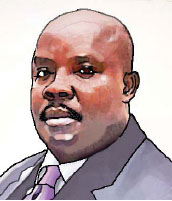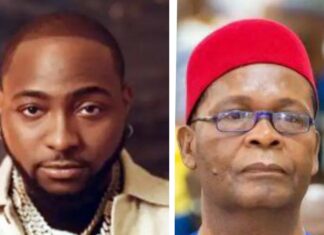By Emeka Alex Duru
(08054103327, nwaukpala@yahoo.com)
There is a lesson in the story by Second Republic Minister for Justice, Richard Akinjide, on how late Yoruba leader, Chief Obafemi Awolowo, forced him to apologise to the First Republic Prime Minister, Abubakar Tafawa Balewa, for being rude to him. Balewa, the Prime Minister, was of the Northern Peoples Congress, the ruling party in coalition with Dr Nnamdi Azikiwe’s National Council of Nigeria and the Cameroun (NCNC), while Awolowo, the Leader of the opposition, was of the Action Group (AG). Awo, as he was fondly called, had disagreed with Balewa over a certain programme of the government. And the young Akinjide, apparently seeking to be counted on the side of the AG Leader, dabbled into the matter and in the process, spoke to Balewa in a manner that was uncomplimentary. The next day when he went to greet Awo, the sage walked him out of his office and mandated him to go and tender apologies to Balewa for addressing him in uncouth language. Akinjide promptly did so. That was respect for age and office.
I had expected President Muhammadu Buhari and the leadership of the All Progressives Congress (APC) to have issued such directive to the presidential aides and officials of the party who have resorted to abuse on President Olusegun Obasanjo and others who have expressed concern over the uncertain state of affairs in the country.
Obasanjo in particular, has been the butt of their unrestrained outbursts. Garba Shehu, Senior Special Assistant to the President on Media, initiated the ugly campaign. APC Deputy National Publicity Secretary, Yekini Nabena has joined the fray, in fact, describing the former president as an embarrassment and a disgrace to Nigeria.
Nabena had in an interview with Daily Independent Newspapers, reportedly thundered, “This is the same man that tried to secure a third term for himself in office after completing the constitutionally approved two terms. So, what was he trying to tell Nigerians? I respect Obasanjo as an elder, but for him to make such a statement, I’m disappointed in him. He is a disgrace to this country”.
Obasanjo is not one that needs anybody to hold brief for him or do his battle. Of course, there is no way he can be absolved of some of the ills plaguing the nation. As military head of state in the 1970s and lately, civilian president, some of his faulty actions and inactions, still haunt the state. In particular, there is no how any objective discourse on impunity in governance and crass disregards to the legislature, can be held without linking him to the rots in the system.
But what are the issues in the present case? Obasanjo had observed that Nigeria is slowly becoming a failed, divided state, and the poverty capital of the world. “Today, Nigeria is fast drifting to a failed and badly divided state. Economically our country is becoming a basket case and poverty capital of the world, and socially, we are firming up as an unwholesome and insecure country”, he had said.
Nobel Laureate, Wole Soyinka, in rare solidarity with the former president, added that the country is more divided as never before under the current administration. He said, “We are close to extinction as a viable comity of peoples, supposedly bound together under an equitable set of protocols of co-habitation, capable of producing its own means of existence, and devoid of a culture of sectarian privilege and will to dominate”.
In saner and soberly societies, these are observations that attract the attention and task the intellect of the leaders, not for attack dogs prancing about, dishing out insults. What we have at hand are matters that border on the very existence of the country as a corporate entity. Obasanjo, Soyinka and others who reasoned alike, spoke the minds of many who do not have the voice and platform to speak up.
The Nigerian nation is currently in a sorry state. When people of insight and courage, therefore raise the fear of the country sliding to failure, it is not a matter of not wishing the government of the day, well. All indices indicate that we are losing it at all parameters of statehood. A state assumes is rightful place, based on its capacity to deliver political goods to its people. The political goods could be intangible but are vital to the survival of any state. The most important is security. How a country manages the security of its citizens determines where it stands in the estimation of others. There are also the considerations of the Gross Domestic Products (GDP) – people’s standard of living; rule of law; health services; the social service delivery that measures how such infrastructures as electricity, roads, education and ease of doing business are made available to the citizenry.
The truth is that in virtually all of these factors, Nigeria is currently in deficit. The state of insecurity in the country is frightening. There is hardly any day that Nigerians are not being slaughtered in tens or hundreds, for one reason or another. Apart from armed gangs robbing and killing with relative ease, kidnappers have also been on the prowl. Because of the worsening security situation in the country, people are now living in perpetual fear as they are not safe on the highways and even in their homes. Rural communities are not spared. We are currently ranked alongside Iraq and Afghanistan on insecurity.
The situation has become so bad that some members of the House of Lords, the British upper legislative chamber, have written to the commonwealth to express their concern over the perennial insecurity in the country. They had in their September 14 letter noted that the failure of the federal government to protect Nigerians was a breach of its obligations under the Commonwealth Charter. For Nigeria that had led the struggle for the decolonization movements in the African Continent to be this awful subject of discussion, indicates the level we have slipped in reputation and regards among others.
We are not better at the economic front. A 2019 report by the National Bureau of Statistics (NBS) that about 82.9million or 40 percent of Nigeria’s estimated 200 million Nigerians, are living in extreme poverty, is one that should give concern to anybody that means well for the country.
The report put the poverty rate in states as follows: Abia, 30.67; Adamawa, 75.41; Akwa Ibom 26.82; Anambra, 14.78; Bauchi, 61.54; Bayelsa, 22.61; Benue, 32.90; Borno, (inclusive because of insurgency)–; Cross River, 36.29; Delta, 6.02; Ebonyi, 79.76; Edo 11.99; Ekiti 28.04; Enugu 58.13, Imo 28.86; Jigawa, 87.02; Kaduna, 43.48; Kebbi, 50.17; Kogi 28.51; Kwara, 20.35; Lagos 4.50; Nasarawa 57.30; Niger 66.11; Ogun 9.32; Osun 8.52; Plateau 55.05; Sokoto 87.73; Taraba 87.72; Yobe 72.34; Zamfara 73.98 and FCT, 38.66. This means that four out of 10 Nigerians have real per capita expenditures below N137, 430 per year. It is thus, not for nothing that we have assumed the unenviable position of the Poverty Capital of the World.
The way to address the situation in the land is not deployment of loose characters to spread attacks on people with opposing views. Why the officials of the government treat contrary opinions as affront on the state, is an issue that is yet to be properly situated. It is because these robotic minds lack the content that they easily take to casting aspersions on superior views. The danger confronting the nation is dire and clearly beyond their comprehension. The sycophants parading as defenders of the administration are not helping the president in their misguided interventions. They are rather exposing him and his government to further ridicule before outsiders.













